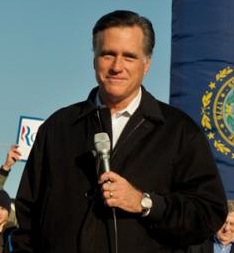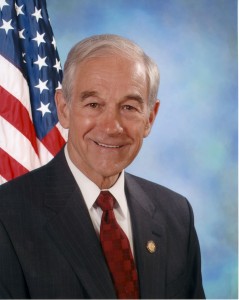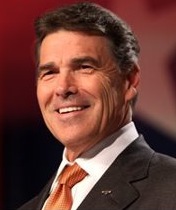The GOP on the LGBT
LGBT issues have been at the forefront of the GOP’s race for president. Recently, Michele Bachmann, who has lost some serious steam over the past few months after dropping in the polls, announced that she would like to overturn marriage equality in Iowa. While Bachmann has been quite vocal about her position against many LGBT rights initiatives, like marriage and adoption, she recently elaborated to Fox News as the candidates gear up for the Iowa Caucus in a few weeks.
“Marriage historically, for all human history, has been between a man and a woman,” she says. “It hasn’t been the same-sex marriage. And remember that in Iowa, it was judges that made the decision – not the legislature, which are the people’s representatives, and certainly not the people.”
While we don’t intend to bash the GOP candidates (well, maybe a few of them), we did want to create a handy guide to understanding what each of the conservative candidates have said about marriage and other LGBT rights issues on their websites, in the news and in the debates.
As Herman Cain suspends his campaign and Newt Gingrich gains momentum (the same guy who recently said poor kids should get to work scrubbing floors) it seems like the right time to get down to the facts. And while we should all agree that politics is about more than one issue, if you are gay, lesbian, bisexual or transgender, generally what each of these candidates has to say about your identity dictates how they also approach other issues related to jobs, the economy and healthcare.
Michele Bachmann is adamantly opposed to LGBT rights. Early in her campaign it was revealed that her husband actually advocated reparative therapy at a clinic and that the couple financially benefits from a program that “helps” gays and lesbians “pray the gay away.” Bachmann also adopts a conservative evangelical Christian viewpoint when it comes to most issues. In 2003, she and Representative Mary Liz Holberg proposed a constitutional amendment to ban her home state of Minnesota from legally recognizing same-sex marriage. She also joined with religious leaders for the “Minnesota for Marriage” rally to support the amendment, which ultimately failed. She even goes as far as to suggest that being gay is a disease. “We need to have profound compassion for people who are dealing with the very real issue of sexual dysfunction in their life,” she says, “and sexual identity disorders.”
Newt Gingrich has been ruffling feathers for years, most notably when he suggested in the 1990s that women should not be allowed to serve in the U.S. military. Many conservatives also questioned whether his personal life (multiple marriage and infidelity) would weaken support among religious supporters. That could be why the GOP frontrunner is coming out against LGBT rights in a big way lately, saying that homosexuality is a “sin” and promising – if elected – an amendment that would “protect traditional family.” He is not in favor of gays or lesbians adopting children, but he is in favor of same-sex couples having the right to leave their estates to each other and for partners of the same-sex to visit each other in the hospital. But the buck stops there. “The concept of family being between a man and women and the concept of these core values that grow out of 3,000 years of Judeo-Christian tradition,” he told a Catholic radio show, “this is a direct threat to the entire secular world.”
Jon Huntsman is a 51-year-old former governor of Utah and former Mormon missionary and personal friend of President Obama who named him as U.S. Ambassador to China. He may not be among the most well-known of the candidates nationally, but as governor he enjoyed a 70 precent approval rating and is respected even by many liberals. He’s worked for both Ronald Reagan and George H.W. Bush. The Huffington Post describes him as such: “A conservative technocrat-optimist with moderate positions.” While governor, he supported legislation for civil same-sex civil unions, but not marriage.
Fred Karger is the only openly gay man to ever run for president. And while he’s been left out of all of the major televised debates so far, he does seem to have a friend in several of the Republican LGBT organizations. “I am the only candidate for president who supports full equality for all Americans,” he says. And by all accounts that seems to be the case, though many believe that President Obama’s criticism of DOMA signals that – if re-elected – he will come out with strong support for marriage and other rights important to the LGBT community around the country. Until then, Karger seems to the lone voice shedding light on LGBT discussions, at least among the Republicans these days. And for that reason, he’s maintained a low rating in the polls.
Mitt Romney hasn’t always been opposed to LGBT rights. In fact, as governor of Massachusetts, he found support among many moderates by acknowledging that same-sex couples should have the right to adopt children. He also penned a letter to the Log Cabin Republicans in favor of “gays and lesbians being able to serve openly and honestly” in the military. He also said, “I’ve been in a state that has gay marriage, and I recognize that the consequences of gay marriage fall far beyond just the relationship between a man and a woman. They also relate to our kids and the right of religion to be practiced freely.” Massachusetts is also one of several states in the country that allows same-sex marriage. But more recently Romney has been openly opposed to marriage and the DADT repeal, saying that both undermine the cultural fabric of the country. He supports a Federal Marriage Amendment that would prohibit marriage on a national level.
Ron Paul is the libertarian of the bunch. The Texas Congressman became an inspiration for the Tea Party early in his campaign, offering sometimes radical and controversial commentary on the U.S. political system as a self-described “Constitutionalist.” He opposes federal efforts to define marriage and has voted against the Federal Marriage Amendment, believing that the decision should be left up to individual states. “Americans understandably fear that if gay marriage is legalized in one state, all other states will be forced to accept such marriage,” says Paul. He’s also argued that same-sex marriage would undermine liberty, but has said when asked about whether he supports gay and lesbian couples’ right to marry, “I am supportive of all voluntary associations and people can call it whatever they want.” He voted for the DADT repeal and opposed sodomy laws in Texas.
Rick Perry makes no bones about supporting marriage between a man and a woman and has signed the Defense of Marriage Act in Texas, where he’s currently governor. But his statements about gay rights are often very complicated. On one hand, he’s gone on record to say that same-sex marriage should be decided by each state. On the other, he signed a pledge to legislate against LGBT rights on a federal level. And in his book, he writes: “I can sympathize with those who believe sexual preference is genetic. I respect their right to engage in the individual behavior of their choosing, but they must respect the right of millions in society to refuse to normalize their behavior.”
Rick Santorum has made his opposition to LGBT rights a major focus of his campaign. We could write a book on what Santorum, a devout Christian, has said on the topic – ranging from comparisons between homosexuality and beastiality to equating being gay and to being incestuous. “Whether it’s polygamy, whether it’s adultery, whether it’s sodomy, all of those things are antithetical to a healthy, stable, traditional family,” he says. He’s also against gay and lesbian adoption, marriage and other rights that would prevent those within the LGBT community from being discriminated against. The former PA senator also says that if elected president, he would repeal the DADT repeal and make same-sex marriage illegal on the federal level.
Who do you think will win the Republican nomination?










